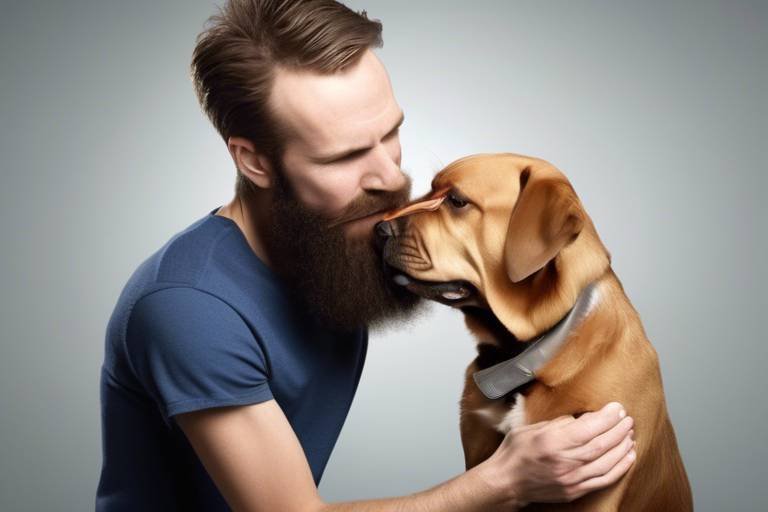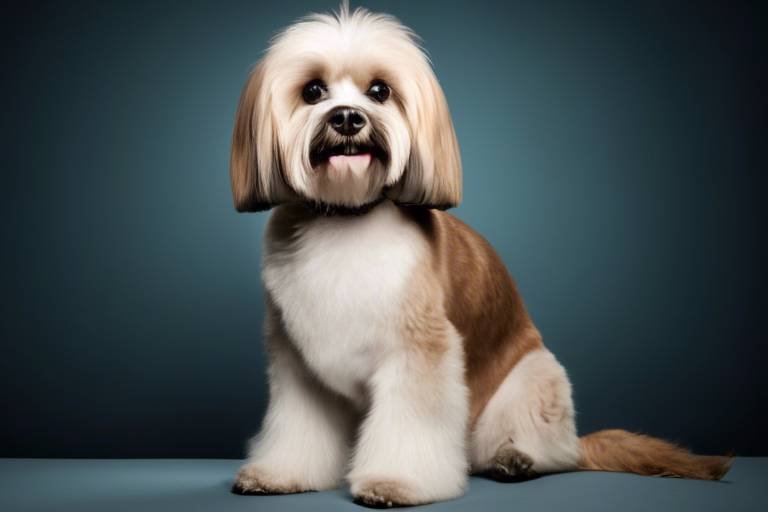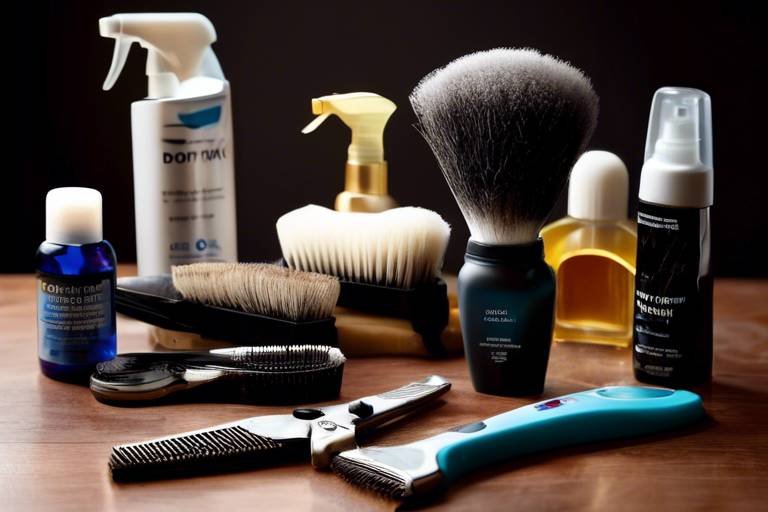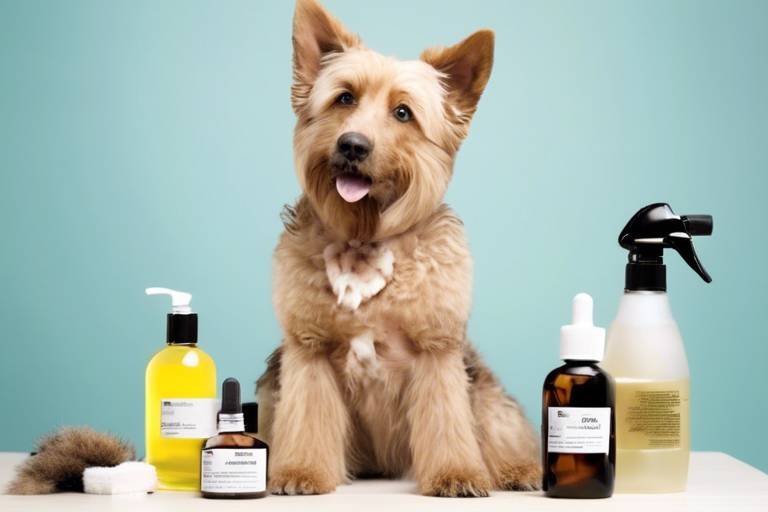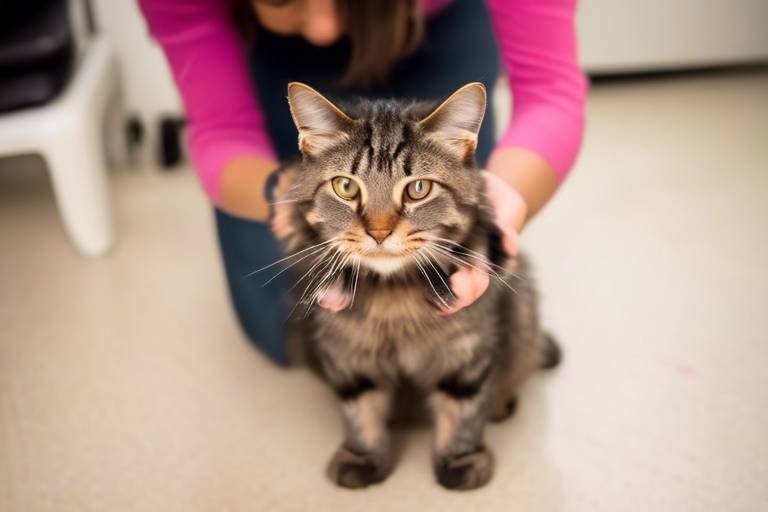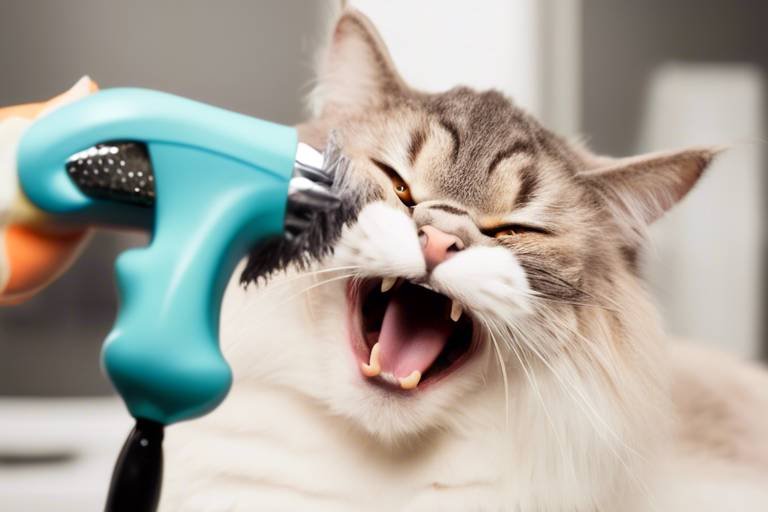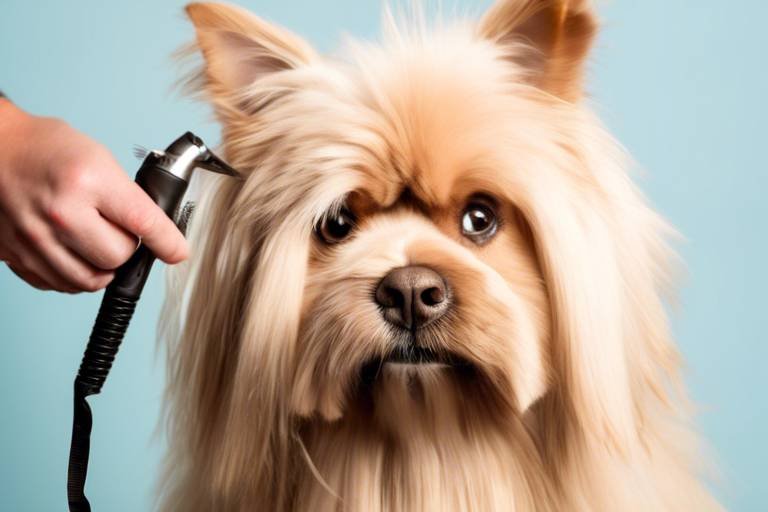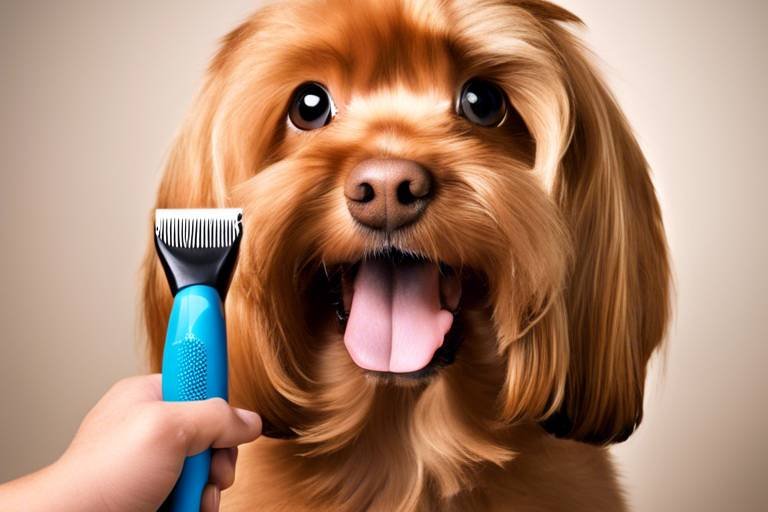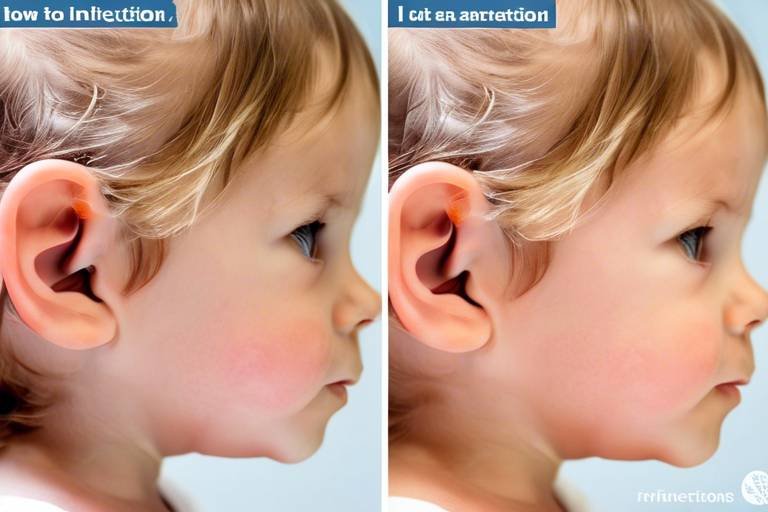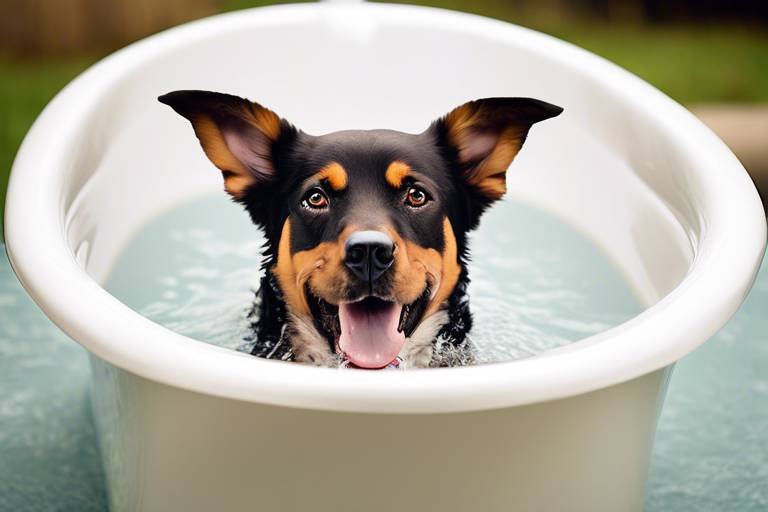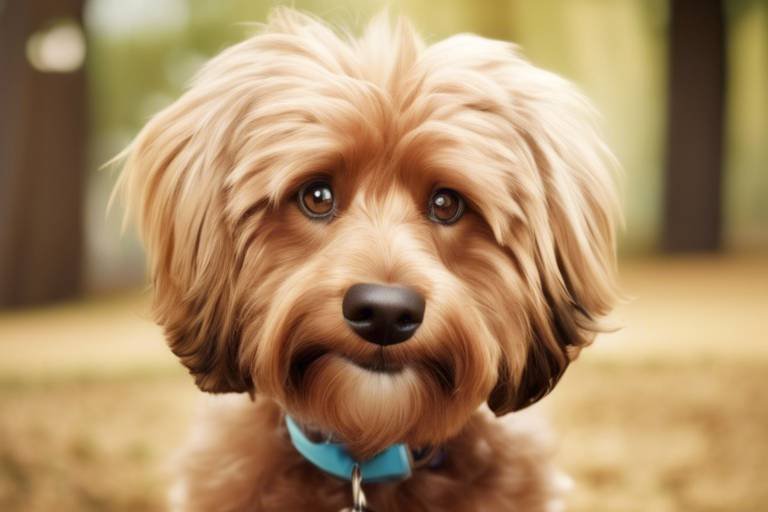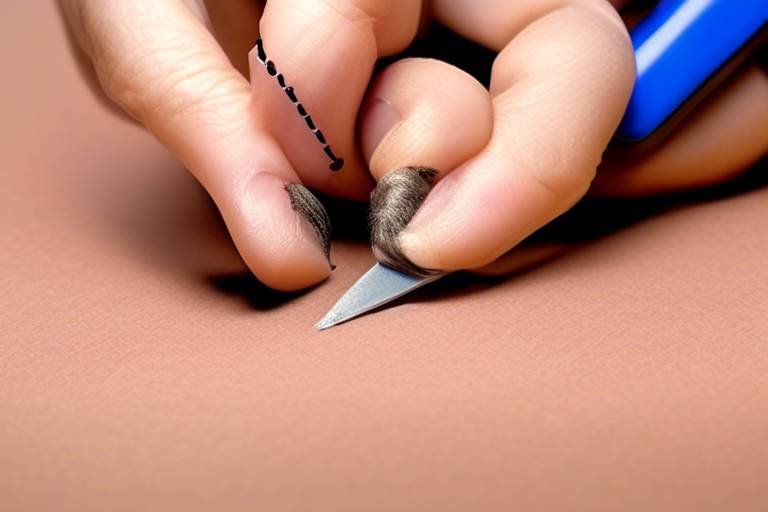The Importance of Grooming for Behavioral Stability
Grooming is often viewed as a mere routine, a daily task that we perform almost automatically. However, it is so much more than that. Grooming practices are deeply intertwined with our emotional and behavioral stability. When we take the time to groom ourselves, we are not just enhancing our appearance; we are also nurturing our mental well-being. Think of grooming as a form of self-respect—a way to communicate to ourselves and others that we value our own presence. It’s like putting on armor before stepping into the battlefield of daily life; it prepares us to face the world with confidence.
Research has shown that individuals who maintain regular grooming habits often experience a boost in self-esteem. This is because grooming can enhance one’s self-image, leading to a more positive outlook on life. When you look good, you feel good, right? This connection between appearance and self-perception is crucial. It’s not just about the external; it’s about how we internalize our grooming habits. For many, a simple act like styling hair or choosing an outfit can serve as a form of self-affirmation, reinforcing the idea that we are worthy of care and attention.
Moreover, grooming has significant psychological benefits that contribute to emotional stability. Engaging in grooming rituals can be a meditative practice, allowing individuals to take a moment for themselves. It’s a time to reflect, to breathe, and to engage in self-care. This act of caring for oneself can reduce feelings of anxiety and depression, creating a buffer against the stresses of daily life. Just as a gardener tends to their plants, ensuring they are healthy and thriving, we must also tend to ourselves. By prioritizing grooming, we cultivate a sense of well-being that radiates outward, impacting our interactions and relationships with others.
In a world where first impressions matter, grooming plays a pivotal role in how we are perceived by others. When we present ourselves well, we not only boost our confidence but also influence how others view us. The psychological impact of grooming extends beyond personal satisfaction; it shapes social dynamics and interactions. Well-groomed individuals are often viewed as more competent, trustworthy, and approachable. This is especially important in professional settings, where appearance can influence career opportunities and workplace relationships.
In conclusion, grooming is not just a superficial activity; it is a vital component of our emotional and behavioral health. By investing time in our grooming routines, we are essentially investing in our mental well-being. So, the next time you find yourself in front of the mirror, remember that you’re not just getting ready for the day—you’re setting the stage for a more confident, stable, and fulfilling life.
- Why is grooming important for mental health? Grooming can enhance self-esteem, promote positive self-image, and serve as a form of self-care, which is essential for mental well-being.
- How does grooming affect social interactions? Well-groomed individuals are often perceived more favorably, which can lead to better social and professional relationships.
- Can grooming routines help reduce anxiety? Yes, regular grooming can provide a sense of control and routine, which can alleviate feelings of anxiety and promote relaxation.
- Are grooming practices the same across cultures? No, grooming practices vary widely across different cultures, each with its own significance and traditions.
- What are some modern grooming trends? Contemporary grooming trends are influenced by social media and evolving beauty standards, leading to diverse practices and preferences.
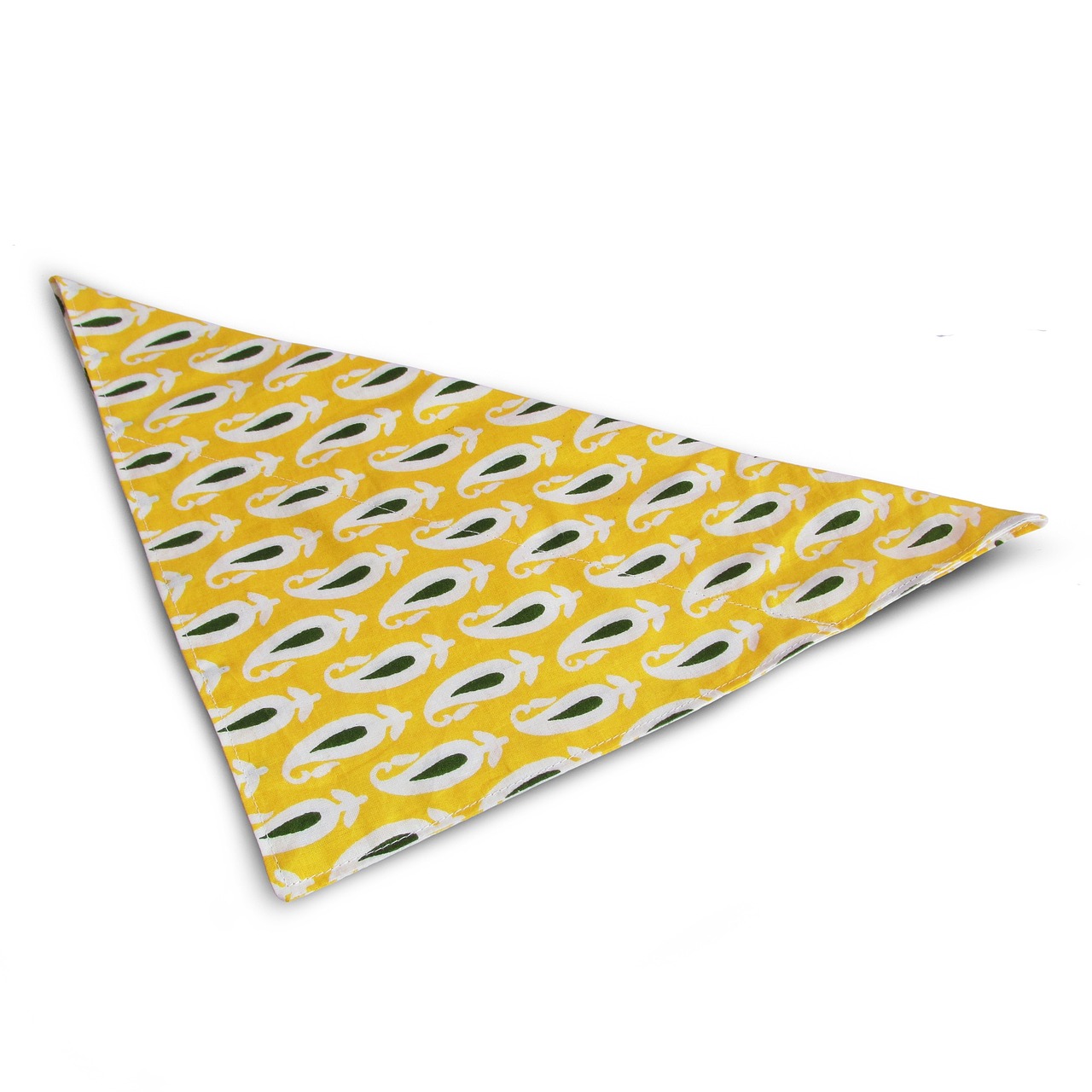
Understanding Grooming and Its Psychological Impact
Grooming is often perceived as a mere routine for maintaining one's appearance, but its significance extends far beyond just looking good. In fact, grooming plays a critical role in shaping our mental well-being and self-perception. When we engage in grooming practices, whether it’s a simple shower, styling our hair, or applying skincare products, we are not only enhancing our physical appearance but also sending powerful signals to our brain about self-worth and confidence.
Consider this: when you look in the mirror and see a well-groomed reflection staring back at you, how does it make you feel? There’s a sense of accomplishment, right? This feeling is rooted in the psychological impact of grooming. Studies have shown that individuals who maintain regular grooming habits often report higher levels of self-esteem and a more positive self-image. It’s like giving yourself a little pat on the back every time you take the time to care for yourself. This self-care ritual can be a powerful tool in combating feelings of inadequacy or anxiety.
Moreover, grooming can serve as a form of self-expression. The choices we make regarding our appearance—from the clothes we wear to the hairstyles we choose—can reflect our personality and mood. This connection between grooming and self-identity is particularly important in a world where first impressions can shape our interactions. When we present ourselves in a way that aligns with our inner selves, we feel more authentic and, in turn, more confident in our social interactions.
Interestingly, the psychological benefits of grooming can also be linked to our social circles. When we groom ourselves, we often feel more prepared to engage with others. This leads to a positive feedback loop where our confidence boosts our interactions, which, in turn, reinforces our self-esteem. It’s a cycle that can significantly enhance our overall emotional health.
Additionally, let’s not forget the role of grooming in reducing stress. Engaging in grooming routines can be therapeutic; think of it as a form of meditation. The simple act of taking time for oneself can serve as a much-needed break from the chaos of daily life. Whether it’s the soothing sensation of a warm shower or the calming ritual of applying lotion, these small acts can help clear the mind and promote a sense of tranquility. For many, grooming becomes a sacred time to unwind and reconnect with oneself, making it a vital component of mental health maintenance.
In summary, grooming is not just about looking presentable; it is an essential practice that influences our psychological state and emotional health. By prioritizing grooming, we are investing in our self-esteem, enhancing our social interactions, and nurturing our mental well-being. So, the next time you pick up that hairbrush or apply your favorite moisturizer, remember that you’re doing more than just grooming—you’re engaging in a powerful act of self-care that can transform your outlook on life.

The Role of Grooming in Social Interactions
Grooming is not just a matter of personal hygiene; it plays a pivotal role in shaping our social interactions and perceptions. Think about it: when you meet someone for the first time, what do you notice? Their smile? Their eyes? Absolutely! But you also notice how they present themselves. A well-groomed individual tends to radiate confidence, which can significantly influence how others perceive them. This is because grooming habits serve as a non-verbal cue that communicates a lot about a person's personality and social standing.
Research shows that people often make snap judgments based on appearance. In fact, studies indicate that first impressions are formed within the first few seconds of meeting someone. This means that your grooming routine can have a huge impact on the way others perceive you. When you take the time to groom yourself, you not only feel better but also project an image of self-respect and care. This can lead to more positive social interactions, as people are naturally drawn to those who appear polished and put-together.
Moreover, grooming can enhance your social life in various ways. For instance, individuals who maintain a consistent grooming routine often find it easier to make new friends and establish connections. This is because well-groomed people are typically viewed as more approachable and trustworthy. In social settings, whether it's a casual gathering or a formal event, being well-groomed can help break the ice and foster meaningful conversations.
Consider the following points regarding grooming and social interactions:
- Confidence Boost: Grooming can elevate your self-esteem, making you feel more confident in social situations.
- Positive Perception: Well-groomed individuals are often perceived as more competent and successful.
- Social Acceptance: Good grooming habits can lead to greater social acceptance and inclusion within various groups.
Additionally, grooming can influence the dynamics of existing relationships. People often feel more comfortable around those who take care of themselves, leading to stronger bonds and deeper connections. This is particularly important in romantic relationships, where attraction is often linked to physical appearance. A partner who prioritizes grooming can enhance the overall appeal and chemistry between individuals.
In the workplace, grooming standards can also dictate how colleagues and clients perceive you. A clean and professional appearance can lead to better opportunities and career advancements. Employers often associate good grooming with professionalism, which can impact your reputation and growth within the company. In contrast, neglecting grooming can lead to negative perceptions, which can hinder your professional relationships.
Ultimately, grooming is an essential element of social interactions that goes beyond mere appearance. It encompasses the way we present ourselves to the world and the messages we send through our grooming habits. Whether it's a job interview, a casual meet-up with friends, or a romantic date, taking the time to groom yourself can create a lasting impression and foster positive social connections.
Q: How does grooming affect first impressions?
A: Grooming significantly impacts first impressions as it influences how others perceive your confidence, professionalism, and attention to detail. People often make judgments based on appearance within seconds of meeting you.
Q: Can grooming improve my social life?
A: Yes! Regular grooming can boost your confidence, making you more approachable and enhancing your chances of forming new friendships and connections.
Q: Are grooming standards the same in all cultures?
A: No, grooming standards can vary widely across different cultures, with each having its own unique practices and significance attached to grooming.
First Impressions and Grooming
When it comes to making a lasting impression, grooming plays a pivotal role. Think about it: when you meet someone for the first time, what do you notice? Is it their charming smile, engaging conversation, or perhaps their well-groomed appearance? In many cases, it’s the latter that sets the tone for the interaction. Studies have shown that people often judge others based on their appearance within the first few seconds of meeting, which can have profound implications for both personal and professional relationships.
Imagine walking into a room filled with potential friends or employers. You spot someone who is impeccably dressed, hair styled neatly, and exuding an aura of confidence. Instantly, you feel drawn to them, right? This is the power of grooming. It’s not just about looking good; it’s about conveying confidence, respect, and attention to detail. When you take the time to groom yourself, you’re sending a message that you value yourself and the people you meet.
But what exactly makes grooming so influential in shaping first impressions? Here are a few key factors:
- Cleanliness: A clean appearance suggests that a person is organized and responsible. It can also indicate that they take care of themselves, which can translate to how they might care for their work or relationships.
- Style: Dressing appropriately for the occasion shows that you understand social cues and norms. Whether it’s a business meeting or a casual gathering, your choice of attire speaks volumes.
- Attention to Detail: Simple things like polished shoes, trimmed nails, or a neat hairstyle can elevate your appearance significantly. These details can create a positive perception that lasts beyond the initial meeting.
On the flip side, neglecting grooming can lead to negative assumptions. People may perceive someone who is unkempt as careless or unprofessional, which can hinder opportunities for connection. This is particularly crucial in professional settings, where first impressions can dictate career trajectories. For instance, a well-groomed candidate might stand out in a competitive job market, while someone who appears disheveled may struggle to get a foot in the door.
Moreover, the effects of grooming extend beyond the initial meeting. The impressions formed can influence long-term relationships, whether they are friendships or professional collaborations. A well-groomed individual is often seen as more approachable and trustworthy, making it easier to build rapport and establish connections.
In conclusion, investing time in grooming isn’t just about aesthetics; it’s about creating a powerful first impression that can open doors and foster relationships. So, the next time you prepare for an important meeting or social event, remember that your grooming habits can be a game-changer in how others perceive you. It’s not just about looking good; it’s about feeling good and projecting the best version of yourself.
Q: How important is grooming for first impressions?
A: Grooming is extremely important for first impressions as it reflects a person's self-respect and attention to detail. A well-groomed individual is often perceived more favorably, which can positively influence social and professional interactions.
Q: Can grooming affect my career opportunities?
A: Yes, grooming can significantly affect career opportunities. In many professional settings, appearance plays a key role in how competence and professionalism are perceived, which can impact hiring decisions and promotions.
Q: What are some quick grooming tips for making a good impression?
A: Some quick tips include ensuring you are clean and well-dressed, paying attention to details like hair and nails, and dressing appropriately for the occasion. A little effort can go a long way in creating a positive first impression.
Professional Settings and Grooming Standards
In today's fast-paced professional world, the way we present ourselves can significantly impact our careers. Grooming standards in professional settings are not merely about looking polished; they’re about conveying competence, confidence, and respect for oneself and others. When you step into an office or attend a meeting, your appearance speaks volumes before you even utter a word. It's like the opening act of a play; it sets the tone for what’s to come.
Consider this: a well-groomed individual is often perceived as more reliable and capable. Research indicates that hiring managers frequently make snap judgments based on appearance, which can affect hiring decisions and promotions. In fact, a study found that 70% of employers believe that personal grooming influences their perception of a candidate's professionalism. This statistic highlights the undeniable link between grooming and career advancement.
It's essential to recognize that grooming standards can vary by industry. For instance, a corporate lawyer may be expected to wear formal attire and maintain a conservative grooming style, while a tech startup employee might have more leeway to express their individuality through casual clothing and hairstyles. However, regardless of the field, there are some universal grooming practices that can elevate your professional image:
- Personal Hygiene: Regular bathing, dental care, and clean nails are non-negotiable.
- Appropriate Attire: Dressing for the occasion shows that you understand workplace norms.
- Groomed Hair: A neat hairstyle can enhance your overall appearance and professionalism.
- Minimal Accessories: Less is often more; opt for subtle jewelry and accessories that complement rather than distract.
Moreover, grooming extends beyond physical appearance; it includes body language and confidence. A well-groomed person who carries themselves with poise and assertiveness is likely to be taken more seriously than someone who appears disheveled. It’s akin to the difference between a well-rehearsed performance and a last-minute rehearsal; the former captures attention and respect.
In conclusion, adhering to grooming standards in professional settings is crucial for establishing a positive first impression, enhancing self-confidence, and ultimately, influencing career progression. By investing time in your grooming routine, you are not only valuing yourself but also respecting the environment you work in. So, the next time you prepare for a big meeting or an important presentation, remember: your grooming choices can be your secret weapon for success.
Grooming in Casual Social Settings
When it comes to casual social settings, grooming plays a surprisingly pivotal role in how we connect with others. Imagine walking into a gathering and instantly noticing how people are dressed and presented; it's like an unspoken language that speaks volumes about who we are and how we feel. Personal grooming isn’t just about looking good; it’s about feeling good and projecting confidence. When we take the time to groom ourselves, we are not only enhancing our appearance but also boosting our self-esteem, which can significantly influence our interactions with others.
Think about it: have you ever felt more confident after a fresh haircut or a new outfit? That’s the psychological magic of grooming at work! When you look in the mirror and see someone who takes care of themselves, it changes your demeanor. You stand taller, smile brighter, and engage more openly with those around you. This transformation can make a world of difference in casual social interactions, whether you're at a friend's barbecue, a casual meet-up, or just hanging out at a coffee shop.
Furthermore, the way we present ourselves can affect the dynamics of our friendships. People are naturally drawn to those who seem well put together. It’s not about being superficial; it’s about creating an inviting atmosphere. When you’re well-groomed, you send a message that you value yourself and, by extension, those around you. This can lead to deeper connections and more meaningful conversations. In a casual setting, where the vibe is relaxed, being well-groomed can help break the ice and spark engaging discussions.
On the flip side, neglecting grooming can have the opposite effect. It can create barriers in social interactions, leading to misunderstandings or even discomfort. For instance, if someone shows up to a casual gathering looking disheveled, it might unintentionally signal disinterest or lack of respect for the occasion or the people present. This doesn’t mean that everyone needs to be dressed to the nines; rather, it’s about finding a balance that reflects your personality while still being considerate of the social context.
In essence, grooming in casual social settings is about more than just aesthetics; it’s about fostering good vibes and creating an environment where everyone feels comfortable. Whether it’s a quick touch-up before heading out or a thoughtful choice in attire, these small acts of self-care can enhance your social experiences. So next time you prepare for a casual outing, remember that grooming is not just a chore; it’s an opportunity to express yourself and connect with others on a deeper level.
Grooming Routines and Mental Health
When we talk about grooming routines, it's easy to think of them as mere tasks that we perform daily, like brushing our teeth or combing our hair. However, these routines can have a profound impact on our mental health. Engaging in regular grooming can serve as a powerful form of self-care, promoting not just physical cleanliness but also emotional well-being. Imagine starting your day with a refreshing shower, followed by a moment to style your hair and put on your favorite outfit. This simple act can set a positive tone for the day ahead, boosting your mood and enhancing your self-esteem.
Research has shown that maintaining personal hygiene and grooming can significantly reduce feelings of anxiety and depression. When you take the time to care for yourself, you’re essentially sending a message to your brain that you are worthy of attention and care. This can be especially important during challenging times when you may feel overwhelmed. The act of grooming can become a ritual that instills a sense of normalcy and control, providing a much-needed anchor in the chaos of life.
Moreover, grooming routines can foster a sense of routine and structure, which is crucial for mental stability. By incorporating grooming into your daily schedule, you create a predictable pattern that can help alleviate stress. Think about how comforting it can be to know that each morning starts with a shower and a moment to prepare yourself for the day. This predictability can be incredibly grounding, especially for those who struggle with anxiety or mood disorders.
Consider the following ways grooming routines can positively influence mental health:
- Enhances self-image: Feeling good about how you look can significantly boost your confidence.
- Acts as a form of mindfulness: Focusing on grooming can help you stay present and reduce racing thoughts.
- Encourages social interaction: Feeling good about your appearance can motivate you to engage with others.
In essence, grooming is more than skin deep; it intertwines with our emotional and psychological states. By taking the time to care for ourselves, we not only improve our physical appearance but also nurture our mental health. So, the next time you approach your grooming routine, remember that it’s not just about looking good—it’s about feeling good inside and out.
- How can grooming routines help with anxiety?
Grooming routines provide a sense of control and normalcy, which can help alleviate anxiety symptoms. - Is there a specific grooming routine that is best for mental health?
While routines can vary, consistency in personal care practices like showering, skin care, and dressing well can significantly benefit mental health. - Can grooming impact my social life?
Yes! Well-groomed individuals often feel more confident and are more likely to engage socially, leading to improved relationships.
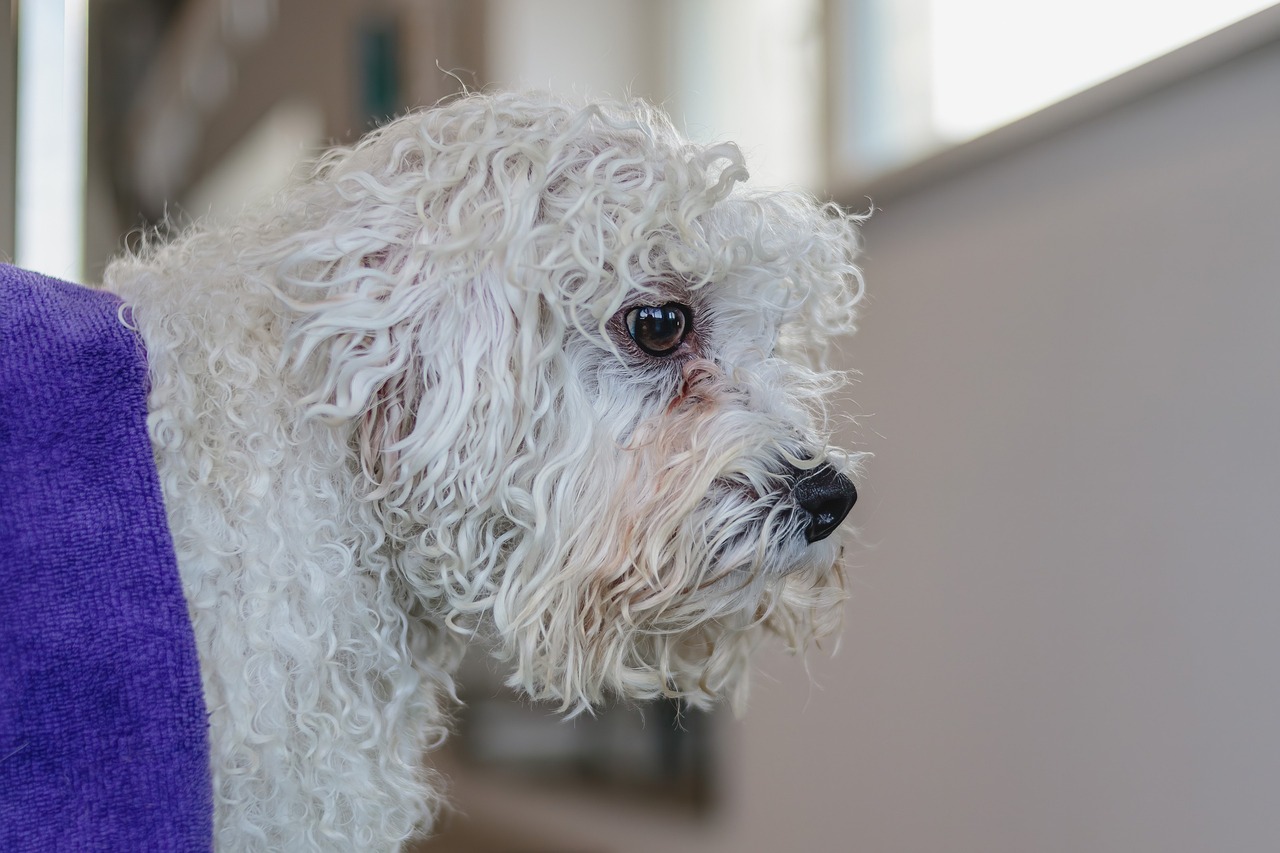
Grooming Across Different Cultures
Grooming practices are as diverse as the cultures that embrace them, each reflecting a unique blend of history, tradition, and social values. In many societies, grooming transcends mere aesthetics; it serves as a vital expression of identity and belonging. For instance, in some African cultures, elaborate hairstyles are not just fashionable but are steeped in meaning, often indicating social status, tribal affiliation, or even personal achievements. These hairstyles can take hours to create and are a source of pride, showcasing the artistry and skill of the groomer.
On the other hand, in Japanese culture, the practice of kintsugi—the art of repairing broken pottery with gold—extends to personal grooming as well. The philosophy behind kintsugi emphasizes the beauty in imperfections, which has led to a more relaxed approach to grooming, where natural beauty is celebrated over stringent beauty standards. This cultural emphasis on embracing flaws can significantly impact individuals' self-esteem and their approach to personal care.
In many Western cultures, grooming has evolved with trends and technologies, influenced heavily by social media and celebrity culture. For example, the rise of the “self-care” movement has led to an increased focus on personal grooming as a form of self-love. Many individuals now see grooming routines as essential for mental well-being, adopting practices that range from skincare regimens to elaborate hairstyling. This trend highlights a shift towards valuing personal health and wellness, showcasing how grooming can be intertwined with mental health.
Interestingly, some cultures have grooming practices that are deeply intertwined with rituals and spirituality. In India, for example, the practice of Ayurveda includes not only dietary recommendations but also grooming rituals that promote balance and harmony within the body. This holistic approach emphasizes that grooming is not just about looking good but also about feeling good, reinforcing the idea that personal care is a vital component of overall health.
Table: Examples of Grooming Practices Across Cultures
| Culture | Grooming Practice | Significance |
|---|---|---|
| African | Elaborate hairstyles | Social status and tribal affiliation |
| Japanese | Kintsugi philosophy | Embracing imperfections |
| Indian | Ayurvedic grooming rituals | Holistic health and wellness |
| Western | Self-care routines | Mental well-being and self-love |
As we can see, grooming is not a one-size-fits-all practice; it is a rich tapestry woven from the threads of culture, tradition, and personal expression. Each grooming routine carries with it a story, a history, and a significance that can enhance an individual's sense of identity and belonging. Understanding these cultural nuances not only broadens our perspective but also encourages us to appreciate the diverse ways people express themselves through grooming.
In conclusion, grooming practices across different cultures reveal much about societal values and individual identities. As we navigate through various cultures, it is essential to recognize and respect these differences, fostering a sense of unity and appreciation for the rich diversity that exists in our world.
- Why is grooming important in different cultures? Grooming serves as a reflection of cultural values, traditions, and personal identity, playing a crucial role in social interactions.
- How do grooming practices affect mental health? Regular grooming routines can enhance self-esteem and promote a sense of well-being, reducing anxiety and depression.
- Are there any universal grooming practices? While grooming practices vary widely, the fundamental desire to present oneself well and feel good about one's appearance is a common thread across cultures.
- How has social media influenced grooming trends? Social media has led to the rapid spread of grooming trends and beauty standards, shaping individual behaviors and societal expectations.
Traditional Grooming Practices
When we think about grooming, it's easy to focus on the modern trends that dominate social media and popular culture. However, hold a wealth of cultural significance that often gets overlooked. These practices are not just about looking good; they are deeply intertwined with identity, heritage, and social norms. For instance, many cultures have specific grooming rituals that have been passed down through generations, each with its own unique meaning and purpose.
Take, for example, the ancient art of henna application in South Asian cultures. This practice is not merely decorative; it symbolizes joy, beauty, and celebration, often used during weddings and festivals. The intricate designs created with henna are not just for aesthetic appeal but also serve as a way to connect with cultural roots and express individuality. Similarly, in African cultures, traditional hairstyles often carry significant meaning, representing tribal affiliation, marital status, and even social standing. These grooming practices are a form of storytelling, sharing a person's background and experiences without uttering a single word.
Moreover, traditional grooming practices can foster a sense of community. In many cultures, grooming is a communal activity where family members or friends come together to help each other prepare for significant life events. This not only strengthens bonds but also reinforces cultural values and traditions. For example, in some Indigenous cultures, hair is considered sacred, and the act of cutting or styling hair is done with great care and respect. This ritual can signify a rite of passage or a connection to one's ancestors, emphasizing the importance of grooming beyond mere aesthetics.
Interestingly, traditional grooming practices can also influence modern behavior. As we navigate a fast-paced world filled with quick fixes and instant results, many people are turning back to these age-old rituals, seeking authenticity and a deeper connection to themselves. The resurgence of natural beauty products and handmade grooming tools reflects a longing for simplicity and a return to roots. This trend highlights the idea that grooming can be a holistic experience, encompassing not just physical appearance but also emotional and spiritual well-being.
In summary, traditional grooming practices are rich in cultural significance and serve as a reminder of our shared humanity. They offer a glimpse into the values and beliefs of different societies, enriching our understanding of what it means to care for oneself and connect with others. As we embrace modern grooming trends, let’s not forget the wisdom and beauty found in these timeless traditions.
- What are some common traditional grooming practices? Traditional grooming practices vary widely but can include hair braiding, henna application, and specific cleansing rituals that reflect cultural heritage.
- How do traditional grooming practices impact mental health? Engaging in traditional grooming can provide a sense of belonging and identity, which can significantly enhance mental well-being and reduce feelings of isolation.
- Are traditional grooming practices still relevant today? Absolutely! Many people are rediscovering these practices as a way to connect with their roots and promote self-care in a fast-paced world.
Modern Trends in Grooming
In today's fast-paced world, grooming has transcended mere necessity; it has become a vibrant reflection of our identity and lifestyle. With the rise of social media and the influence of beauty influencers, modern grooming trends are evolving at an unprecedented pace. Have you ever noticed how a simple hashtag can turn a particular grooming style into a global phenomenon overnight? It's fascinating how platforms like Instagram and TikTok are shaping the way we perceive personal care and grooming routines.
One of the most prominent trends is the increasing emphasis on sustainability. Many individuals are now opting for eco-friendly grooming products, such as biodegradable razors, organic shampoos, and cruelty-free cosmetics. This shift not only reflects a growing awareness of environmental issues but also resonates with a desire for personal authenticity. It's like choosing to wear a badge of honor for being responsible and caring about the planet. As a result, brands are responding by launching products that are not just effective but also environmentally conscious.
Additionally, the concept of self-care has become a cornerstone of modern grooming practices. People are no longer viewing grooming as a chore; instead, it has morphed into a therapeutic ritual. Skincare routines, for example, are being marketed as a way to unwind and de-stress, allowing individuals to take a moment for themselves in an otherwise chaotic world. Imagine starting your day with a refreshing face mask while sipping your morning coffee—it's a small act that can significantly boost your mood and set a positive tone for the day.
Furthermore, the rise of gender-neutral grooming products is breaking down traditional barriers. Brands are increasingly offering unisex products that cater to everyone, regardless of gender. This trend not only promotes inclusivity but also reflects a broader cultural shift towards accepting diverse expressions of identity. For instance, the popularity of beard oils and skincare products is no longer confined to men; women are embracing these products as part of their grooming arsenal, blurring the lines of conventional beauty standards.
Social media also plays a pivotal role in influencing grooming trends. Platforms like TikTok have given rise to viral challenges and tutorials that encourage users to experiment with their looks. From the latest hair trends to innovative makeup techniques, these platforms serve as a virtual playground for creativity. Have you ever tried a trending hairstyle just because it looked fun and easy? This accessibility to information and inspiration has empowered individuals to express themselves in ways that were previously unimaginable.
Lastly, the integration of technology into grooming is a game-changer. Smart mirrors that analyze your skin and recommend products, or apps that guide you through personalized skincare routines, are becoming more commonplace. It's like having a personal grooming assistant right at your fingertips! This fusion of technology and personal care allows for a more tailored approach, ensuring that individuals can find what works best for them without the guesswork.
- What are some popular modern grooming trends? Modern grooming trends include sustainable products, self-care rituals, gender-neutral items, social media influences, and technological advancements.
- How can I incorporate sustainability into my grooming routine? You can opt for eco-friendly products, reduce waste by using refillable containers, and support brands that prioritize sustainability.
- Is grooming only about aesthetics? No, grooming also plays a significant role in mental health and self-esteem, serving as a form of self-care and personal expression.
Frequently Asked Questions
- What is the psychological impact of grooming on individuals?
Grooming has a significant psychological impact as it boosts self-esteem and fosters a positive self-image. When individuals take the time to groom themselves, it can lead to feelings of accomplishment and confidence, which are essential for overall mental well-being.
- How does grooming influence social interactions?
Grooming plays a vital role in social interactions. Well-groomed individuals are often perceived more favorably, which can enhance their social relationships. This positive perception can lead to better opportunities for networking and forming friendships.
- Why are first impressions important in relation to grooming?
First impressions are crucial because they set the tone for future interactions. People often judge others based on their appearance, and good grooming can create a lasting positive impression, influencing both personal and professional relationships.
- What are the grooming standards in professional settings?
In professional environments, grooming standards can significantly affect how individuals are perceived regarding their competence and professionalism. Adhering to these standards can lead to better career opportunities and a more favorable workplace dynamic.
- How does grooming affect casual social interactions?
Grooming also impacts casual social settings. Individuals who maintain good grooming habits are often more accepted in social circles, which can enhance their friendships and overall social life. It can help create a sense of belonging and acceptance among peers.
- Can grooming routines improve mental health?
Absolutely! Regular grooming routines can act as a form of self-care, helping to reduce anxiety and depression. Engaging in these activities can provide a sense of control and routine, which is beneficial for mental health.
- How do grooming practices vary across different cultures?
Grooming practices differ widely across cultures, each with its own significance and social norms. These practices can shape identity and influence how individuals perceive themselves and others in their cultural context.
- What are some traditional grooming practices from various cultures?
Many cultures have unique grooming traditions, such as henna application in South Asian cultures or the use of specific oils in African communities. These practices often carry deep cultural meanings and serve as expressions of identity.
- How have modern trends influenced grooming?
Modern trends in grooming are heavily influenced by social media and changing beauty standards. Today, individuals are exposed to diverse grooming styles and practices, which can shift their perceptions and behaviors regarding personal grooming.

